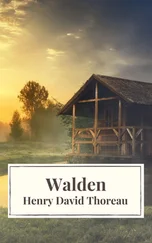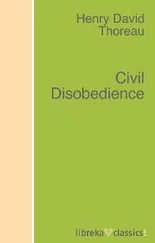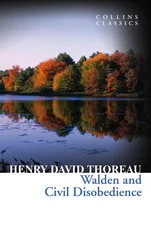1 ...7 8 9 11 12 13 ...20 walls must be stripped, and our lives must be stripped, and beautiful
housekeeping and beautiful living be laid for a foundation: now, a
taste for the beautiful is most cultivated out of doors, where there is
no house and no housekeeper.
Old Johnson, in his “Wonder-Working Providence,” speaking of the first
settlers of this town, with whom he was contemporary, tells us that
“they burrow themselves in the earth for their first shelter under some
hillside, and, casting the soil aloft upon timber, they make a smoky
fire against the earth, at the highest side.” They did not “provide
them houses,” says he, “till the earth, by the Lord’s blessing, brought
forth bread to feed them,” and the first year’s crop was so light that
“they were forced to cut their bread very thin for a long season.” The
secretary of the Province of New Netherland, writing in Dutch, in 1650,
for the information of those who wished to take up land there, states
more particularly that “those in New Netherland, and especially in New
England, who have no means to build farmhouses at first according to
their wishes, dig a square pit in the ground, cellar fashion, six or
seven feet deep, as long and as broad as they think proper, case the
earth inside with wood all round the wall, and line the wood with the
bark of trees or something else to prevent the caving in of the earth;
floor this cellar with plank, and wainscot it overhead for a ceiling,
raise a roof of spars clear up, and cover the spars with bark or green
sods, so that they can live dry and warm in these houses with their
entire families for two, three, and four years, it being understood
that partitions are run through those cellars which are adapted to the
size of the family. The wealthy and principal men in New England, in
the beginning of the colonies, commenced their first dwelling houses in
this fashion for two reasons; firstly, in order not to waste time in
building, and not to want food the next season; secondly, in order not
to discourage poor laboring people whom they brought over in numbers
from Fatherland. In the course of three or four years, when the country
became adapted to agriculture, they built themselves handsome houses,
spending on them several thousands.”
In this course which our ancestors took there was a show of prudence at
least, as if their principle were to satisfy the more pressing wants
first. But are the more pressing wants satisfied now? When I think of
acquiring for myself one of our luxurious dwellings, I am deterred,
for, so to speak, the country is not yet adapted to _human_ culture,
and we are still forced to cut our _spiritual_ bread far thinner than
our forefathers did their wheaten. Not that all architectural ornament
is to be neglected even in the rudest periods; but let our houses first
be lined with beauty, where they come in contact with our lives, like
the tenement of the shellfish, and not overlaid with it. But, alas! I
have been inside one or two of them, and know what they are lined with.
Though we are not so degenerate but that we might possibly live in a
cave or a wigwam or wear skins today, it certainly is better to accept
the advantages, though so dearly bought, which the invention and
industry of mankind offer. In such a neighborhood as this, boards and
shingles, lime and bricks, are cheaper and more easily obtained than
suitable caves, or whole logs, or bark in sufficient quantities, or
even well-tempered clay or flat stones. I speak understandingly on this
subject, for I have made myself acquainted with it both theoretically
and practically. With a little more wit we might use these materials so
as to become richer than the richest now are, and make our civilization
a blessing. The civilized man is a more experienced and wiser savage.
But to make haste to my own experiment.
Near the end of March, 1845, I borrowed an axe and went down to the
woods by Walden Pond, nearest to where I intended to build my house,
and began to cut down some tall, arrowy white pines, still in their
youth, for timber. It is difficult to begin without borrowing, but
perhaps it is the most generous course thus to permit your fellow-men
to have an interest in your enterprise. The owner of the axe, as he
released his hold on it, said that it was the apple of his eye; but I
returned it sharper than I received it. It was a pleasant hillside
where I worked, covered with pine woods, through which I looked out on
the pond, and a small open field in the woods where pines and hickories
were springing up. The ice in the pond was not yet dissolved, though
there were some open spaces, and it was all dark colored and saturated
with water. There were some slight flurries of snow during the days
that I worked there; but for the most part when I came out on to the
railroad, on my way home, its yellow sand heap stretched away gleaming
in the hazy atmosphere, and the rails shone in the spring sun, and I
heard the lark and pewee and other birds already come to commence
another year with us. They were pleasant spring days, in which the
winter of man’s discontent was thawing as well as the earth, and the
life that had lain torpid began to stretch itself. One day, when my axe
had come off and I had cut a green hickory for a wedge, driving it with
a stone, and had placed the whole to soak in a pond hole in order to
swell the wood, I saw a striped snake run into the water, and he lay on
the bottom, apparently without inconvenience, as long as I stayed
there, or more than a quarter of an hour; perhaps because he had not
yet fairly come out of the torpid state. It appeared to me that for a
like reason men remain in their present low and primitive condition;
but if they should feel the influence of the spring of springs arousing
them, they would of necessity rise to a higher and more ethereal life.
I had previously seen the snakes in frosty mornings in my path with
portions of their bodies still numb and inflexible, waiting for the sun
to thaw them. On the 1st of April it rained and melted the ice, and in
the early part of the day, which was very foggy, I heard a stray goose
groping about over the pond and cackling as if lost, or like the spirit
of the fog.
So I went on for some days cutting and hewing timber, and also studs
and rafters, all with my narrow axe, not having many communicable or
scholar-like thoughts, singing to myself,—
Men say they know many things;
But lo! they have taken wings,—
The arts and sciences,
And a thousand appliances;
The wind that blows
Is all that any body knows.
I hewed the main timbers six inches square, most of the studs on two
sides only, and the rafters and floor timbers on one side, leaving the
rest of the bark on, so that they were just as straight and much
stronger than sawed ones. Each stick was carefully mortised or tenoned
by its stump, for I had borrowed other tools by this time. My days in
the woods were not very long ones; yet I usually carried my dinner of
bread and butter, and read the newspaper in which it was wrapped, at
noon, sitting amid the green pine boughs which I had cut off, and to my
bread was imparted some of their fragrance, for my hands were covered
with a thick coat of pitch. Before I had done I was more the friend
than the foe of the pine tree, though I had cut down some of them,
having become better acquainted with it. Sometimes a rambler in the
Читать дальше












